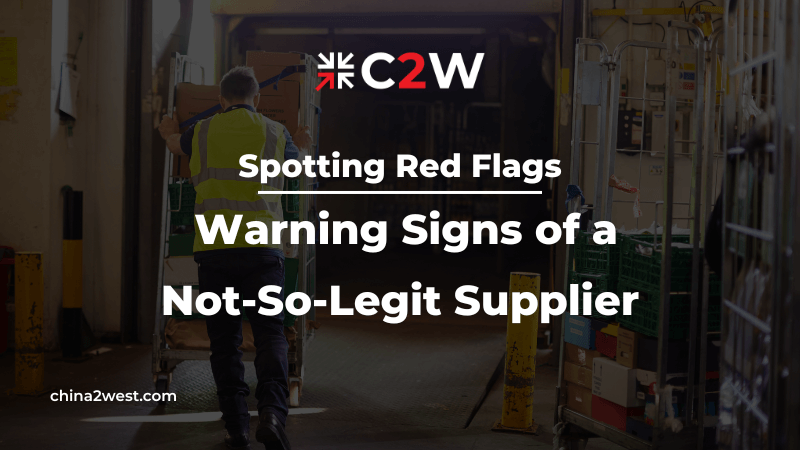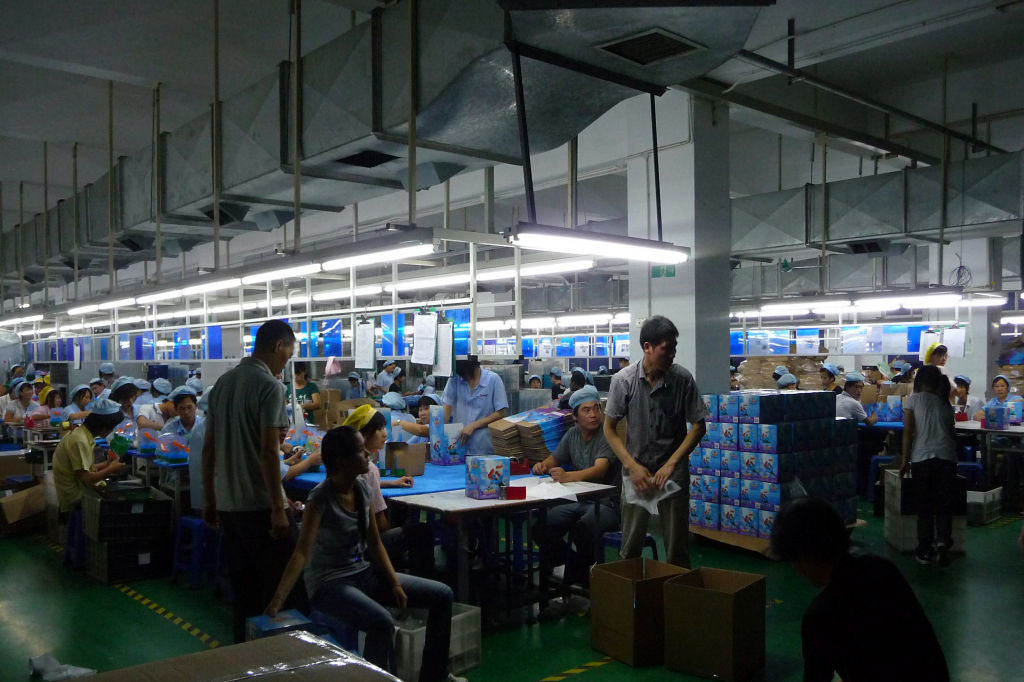When sourcing from China, finding a reliable supplier is key to the success of your business operations. With the vast array of online options, it can be challenging to determine which suppliers are trustworthy and which may cause more harm than good. In this blog post, we will explore the red flags that indicate an unreliable supplier, allowing you to make informed decisions and protect your business interests.
Lack of Proper Communication
In the intricate dance of international sourcing, the rhythm of communication between a business and its suppliers must be in sync. When this flow falters, especially with suppliers from China, it raises immediate concerns about the reliability of those you’re choosing to partner with.
One glaring red flag is delayed responses to emails or messages, which can derail project timelines and inject unnecessary stress into planning processes. Equally troubling are replies that skirt around direct questions or fail to provide concrete answers. This evasiveness can obscure critical details about production capabilities, lead times, or costs, leaving businesses in a precarious position.
Additionally, communication barriers such as significant language difficulties should not be underestimated. While not every supplier needs to be fluent in English, an ability to effectively convey and comprehend complex ideas is essential for mutual understanding and success. When these communication hurdles emerge, they often hint at deeper issues within the supplier’s operations or their commitment to fostering a productive partnership.
Unrealistic Pricing and Quotes
Navigating the landscape of pricing and quotes when sourcing from China requires a discerning eye. An immediate red flag in this terrain is encountering quotes that significantly undercut the market average. While securing a competitive rate is crucial, anomalously low quotes often signal compromise either in the quality of materials used or in the manufacturing processes. This can manifest in substandard products that fail to meet your business’s needs or the expectations of your clientele, potentially harming your brand’s reputation and financial health.
Comparative analysis is a vital step in sidestepping pitfalls associated with unrealistic pricing. By soliciting and scrutinizing quotes from a variety of suppliers, you can gauge the market’s pricing spectrum and identify outliers.
Additionally, engaging in open dialogue about the components of the quote can illuminate the reasons behind lower prices. Factors such as economies of scale, efficiencies in production, or even regional advantages might justify more attractive pricing.
Insufficient Documentation and Certifications
A telltale sign of a questionable supplier is their inability or outright refusal to share critical documentation and certifications concerning their operations and products. This kind of transparency is non-negotiable and forms the backbone of trust in international trade. Reputable suppliers in China, as anywhere else, should readily provide comprehensive evidence of their legitimacy, product safety, and adherence to international standards. This includes, but is not limited to, valid manufacturing licenses, certifications like ISO for quality management systems, and detailed quality control reports that highlight their commitment to excellence.
The lack of such documents should immediately raise concerns about the credibility of a supplier. Authentic documentation serves not only as proof of the supplier’s capability to meet market demands but also as a safeguard for your business against potential legal and financial risks associated with non-compliance to global standards. For instance, without the right certifications, products could fail to meet regulatory requirements in your home country, leading to costly recalls or legal issues.
Poor Reputation and Lack of References
A supplier’s historical performance and the experiences of their previous clients serve as vital indicators of their reliability and integrity. Engaging with a supplier without first investigating their standing in the industry is akin to navigating a ship in foggy waters without a compass. A series of negative reviews, unresolved disputes, or instances of unethical behavior are significant red flags that necessitate caution.
Suppliers who are transparent and proud of their track record will have no qualms about connecting you with their clients. These references can provide a clearer picture of the supplier’s consistency in quality, adherence to timelines, and ability to communicate effectively.
Inflexibility in Samples or Prototypes
Navigating the initial stages of a partnership with a supplier involves a mutual exploration of capabilities and expectations. An unmistakable red flag during this phase is a supplier’s refusal to provide samples or prototypes that align with your product requirements. This stance not only demonstrates a lack of customer focus but also signals potential rigidity in their production processes. A collaborative approach to developing samples or prototypes is essential, as it serves as a litmus test for the supplier’s ability to adapt to your specific needs and innovate alongside your business.
Suppliers who resist making modifications to their standard offerings, or who charge exorbitant fees for customization, reveal a reluctance to invest in potential long-term collaborations. This behavior can limit your product’s ability to stand out in the market or meet niche customer needs, directly impacting your competitive edge. Additionally, a supplier’s insistence on their predefined designs without acknowledging your expertise and understanding of your market can lead to products that are misaligned with consumer expectations.
Overpromising and Under-Delivering
A supplier’s propensity to assure extraordinary outcomes, whether in terms of product quality, turnaround times, or cost efficiencies, should trigger skepticism. This tactic, while initially appealing, often masks an inability to meet those inflated expectations, setting the stage for disappointment and strained relations.
Suppliers worth their salt will maintain a balance between optimism and realism, providing assurances that are backed by evidence and precedent. They understand that trust is built on demonstrated reliability, not just on hopeful projections. This level of pragmatism in setting expectations not only fosters a transparent and accountable relationship but also ensures that your business is safeguarded against the repercussions of unmet promises. Thus, identifying and sidestepping suppliers who habitually overpromise and under-deliver is pivotal in nurturing partnerships that are both sustainable and productive.
Work with a Reliable Supplier in China
Recognizing these red flags will empower you to make informed decisions and establish partnerships that will foster long-term business growth. If you ever find yourself in doubt, remember that cutting corners in supplier selection can cost far more in the long run than investing time in finding a suitable and reliable partner.
For more advice on how to secure your supply chain, or if you suspect that you are dealing with a dubious supplier, contact us today. Since the establishment in 2005, C2W has proudly stood as a beacon of reliability and expertise in the field of product sourcing. As a British-owned and managed company, we bring a unique blend of international standards and local market understanding to our operations. Our team is dedicated to helping you navigate the complexities of supplier relationships to ensure your business thrives on a foundation of trust and professionalism.


